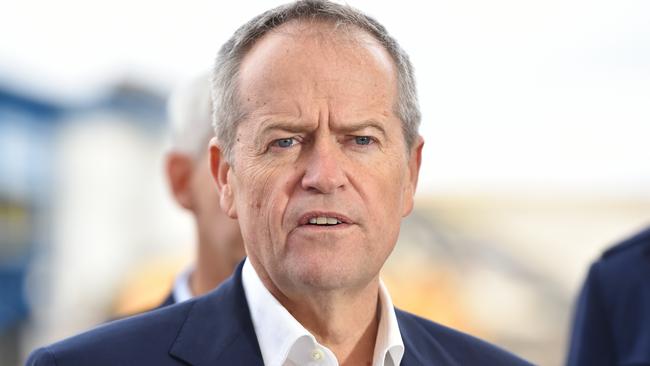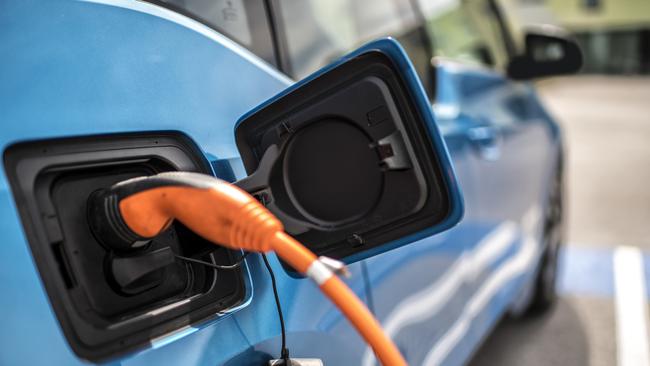Electric cars and tree clearing restrictions to cut emissions
After weeks of growing pressure, Opposition Leader Bill Shorten will today release his plan to slash carbon emissions. Among it is an ambitious plan for electric cars as well a move to extend Queensland’s controversial land clearing restrictions.
QLD News
Don't miss out on the headlines from QLD News. Followed categories will be added to My News.
HALF of all new car sales would be electric vehicles within a decade, while Queensland’s controversial land clearing restrictions will be extended nationwide under Labor’s plan to drastically cut carbon emissions.
New residential and commercial developments, as well as federal road upgrades would have to include electric car charging stations under the plan.
MORE BUDGET NEWS
Breaking open the bottleneck: $1 billion M1 fix in the Budget
Federal Budget 2019: Payments up to $125 to help with power bills
After weeks of growing pressure, Opposition Leader Bill Shorten will today release his plan to slash carbon emissions by 45 per cent by 2030.

It will also see more and tougher emissions limits placed on the nation’s 250 biggest polluters in a carbon cap-and-trade scheme based on a Turnbull Government policy.
Agriculture will be exempt from the scheme — saving the Bunnings barbecue — but farmers will be paid to plant trees and store carbon to create offsets they sell to big producers.
But the nationwide rollout of tree-clearing restrictions mean that even if the Queensland laws are rolled back, the restrictions will remain in place.
Switching to roof top solar and electric cars could save households $5000 a year
Queensland electric car charging stations used just 1240 times in a year
Farmers went to war with the Palaszczuk Government after it introduced its laws, which could see a similar backlash for Federal Labor on the way.
Emissions intensive businesses exposed to trade markets, like smelters in Gladstone, will be exempt from emissions limits set on other companies.

Instead they will have specifically tailored plans to ensure any climate policies are in line with their international competitors, while $300 million will be set aside to find ways they can cut pollution.
A key part of the plan is setting a 50 per cent target of all new car sales to be electric vehicles by 2030, lowering the price of the cars by giving certainty to the market which will increase production and demand.
It will be a massive task with electric cars making up just 0.2 per cent of car sales in Australia, though this could be increased if it includes hybrids, while government reports have already forecast the price of electric cars to match petrol vehicles within seven years.
“Australia lags behind our competitor countries, whether it’s in electric vehicle take-up, or vehicle fuel efficiency,” Mr Shorten said.
“We have 10 times lower electric vehicle take-up than the global average, and we’re at risk of being left behind.”
Businesses will be able to claim tax write-offs of 20 per cent on any electric car valued at $20,000 or more.
The Government’s own fleet will have to move to 50 per cent of new car purchases being electric by 2025.
As well as buying carbon offsets from farmers, big polluters will be able to buy offsets internationally.
If they come under their limit, they will be able to bank that as a credit and sell it to companies looking for an offset.


